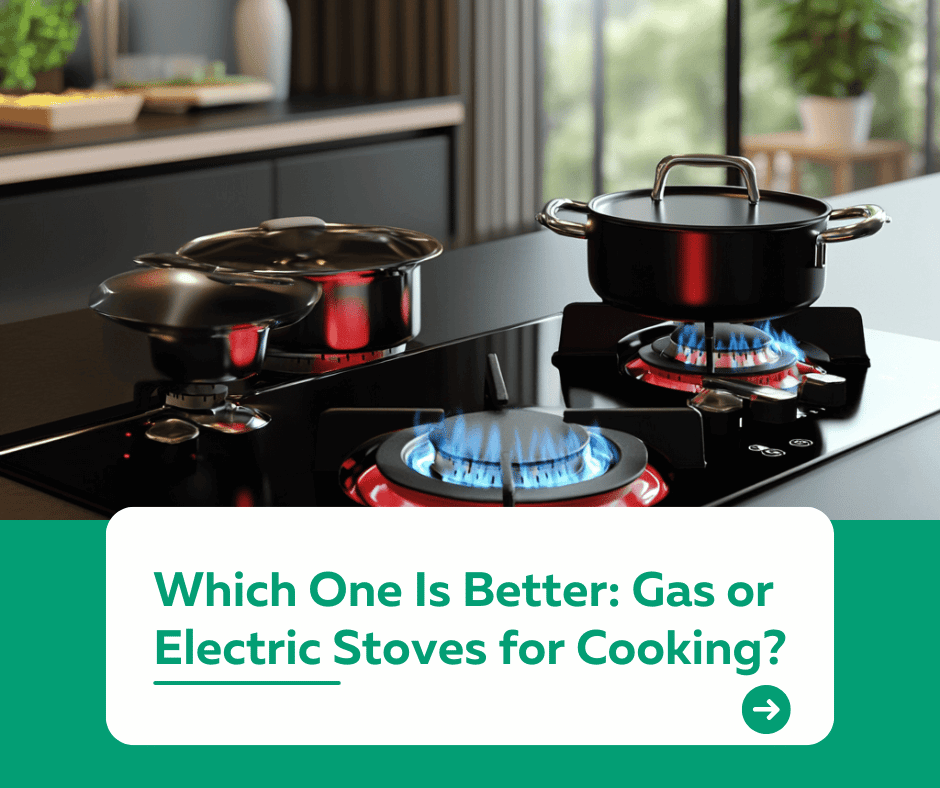
Introduction
The debate between gas and electric stoves has been ongoing for years. Which one is better for cooking? Both have unique advantages and drawbacks, and the choice depends on your cooking style, budget, and kitchen setup. Let’s dive into the pros and cons of gas and electric stoves to help you decide which is best for your kitchen.
1. Gas Stoves: The Classic Choice
Advantages
✅ Instant Heat Control: Flames provide immediate heat adjustments, ideal for precision cooking.
✅ Visual Indicator: The flame lets you see the heat level clearly.
✅ Compatible with All Cookware: Works with any type of pot or pan.
✅ Better for High Heat Cooking: Perfect for stir-frying, searing, and boiling water quickly.
Disadvantages
- Installation: Requires a gas line, which can be costly if your home doesn’t already have one.
- Safety Concerns: Gas leaks and open flames pose potential risks.
- Energy Efficiency: Less efficient than electric stoves, as some heat is lost to the air.
2. Electric Stoves: The Modern Option
Advantages
✅ Sleek Design: Smooth, glass-ceramic tops offer a modern look and are easy to clean.
✅ Even Heating: Provides consistent heat for baking and simmering.
✅ Safety Features: No open flames, reducing fire hazards.
✅ Energy Efficiency: Electric stoves are more energy-efficient, especially induction models.
Disadvantages
- Heat Adjustment: Slower to adjust temperatures compared to gas stoves.
- Cookware Limitations: Induction models require magnetic cookware.
- Power Dependency: Requires electricity, making it unusable during power outages.
3. Key Comparisons
| Feature | Gas Stoves | Electric Stoves |
|---|---|---|
| Heat Control | Immediate and precise | Slower adjustment |
| Cooking Performance | Better for high-heat cooking | Even heating for baking |
| Installation | Requires a gas line | Easy installation with an outlet |
| Safety | Open flames and gas risks | Safer, no open flames |
| Energy Efficiency | Less efficient | More energy-efficient |
4. Which One Should You Choose?
Choose Gas If:
- You prefer quick heat adjustments and high-heat cooking.
- You need a stove compatible with all types of cookware.
- Your home already has a gas line installed.
Choose Electric If:
- You prioritize safety and a sleek, modern design.
- You do a lot of baking or low-heat cooking.
- Energy efficiency and ease of cleaning are important to you.
Conclusion
The decision between gas and electric stoves depends on your cooking habits, kitchen setup, and priorities. Gas stoves are perfect for high-heat, precision cooking, while electric stoves excel in safety and modern design. For more kitchen tips and comparisons, visit our Kuestion.com.